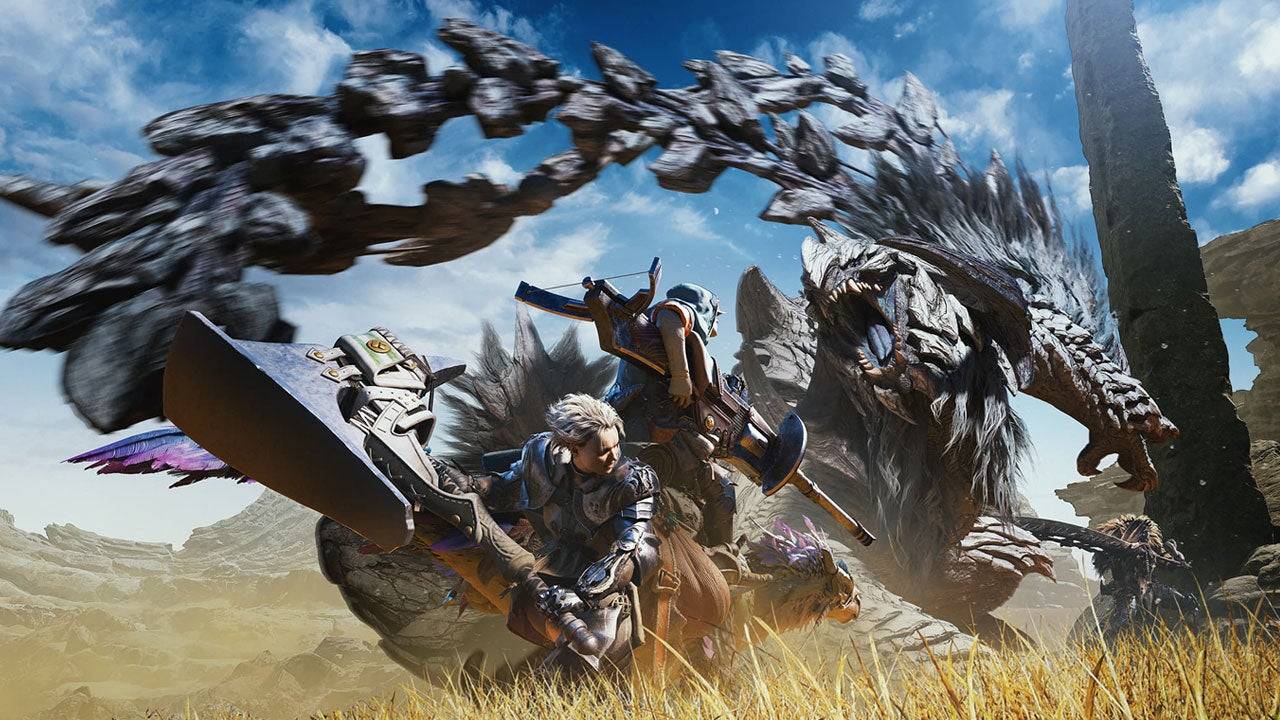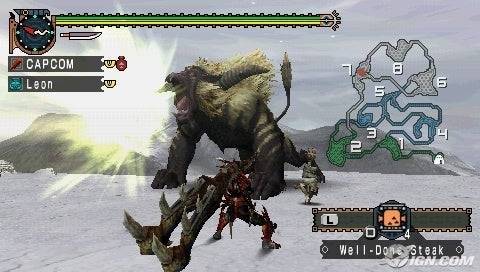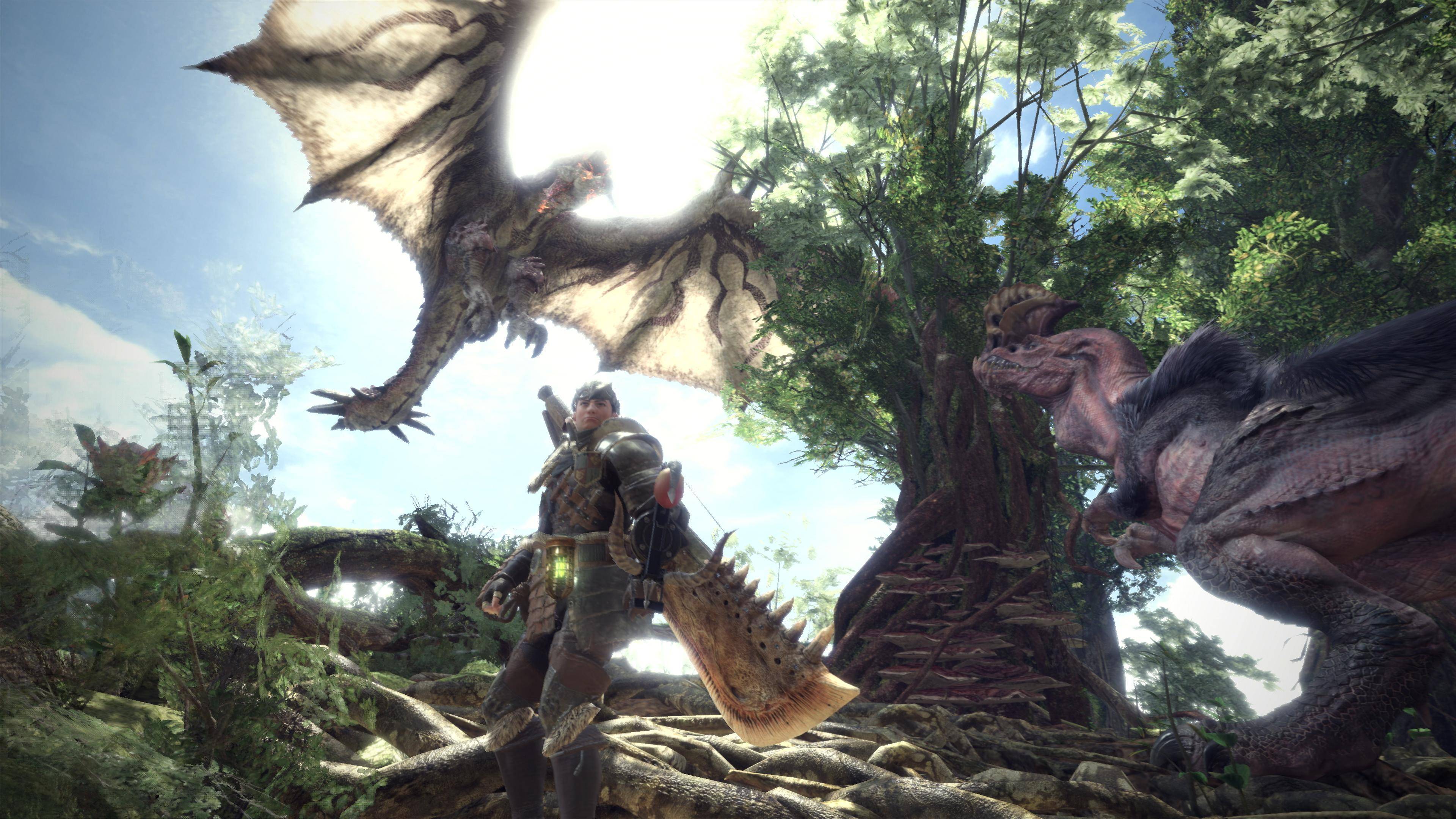by Olivia May 23,2025
In the leadup to its global launch, Monster Hunter Wilds shattered pre-order records on both Steam and PlayStation, seamlessly following the trail blazed by its predecessors, 2022’s Monster Hunter Rise and 2018’s Monster Hunter: World. These sales figures underscore Capcom's unique and esoteric RPG series as a titan among video game franchises worldwide.
But this global acclaim wasn't always in the cards. A decade ago, the notion of a Monster Hunter game achieving such widespread popularity would have seemed outlandish. Flash back to 2004 when the original game debuted, and the idea was even more improbable, receiving mixed reviews. It wasn't until the series transitioned to the PSP in 2005 that Monster Hunter truly exploded—in Japan.
For years, Monster Hunter epitomized the "bigger in Japan" phenomenon. The reasons were straightforward, but that didn’t deter Capcom from striving to penetrate the international market. The successes of Monster Hunter: World, Rise, and now Wilds affirm the worth of these efforts.
This is the journey of Monster Hunter from a domestic hit to a global powerhouse.
 Monster Hunter Wilds is already proving to be immensely popular. | Image credit: Capcom
Monster Hunter Wilds is already proving to be immensely popular. | Image credit: Capcom
Around the time of Street Fighter 5’s launch in 2016, Capcom underwent a significant internal reorganization to prepare for a new generation of games. These games would leverage the company’s brand-new RE Engine, a successor to the aging MT Framework. This shift was more than a technical upgrade; it included a new directive to create games for a global audience, not just existing fans in specific regions.
“It was a confluence of factors,” says Hideaki Itsuno, a former game director at Capcom, renowned for his work on Devil May Cry. “The engine change and the clear goal set for all teams to produce games that appeal to the global market. Games that are fun for everyone.”
During the PS3 and Xbox 360 era, Capcom's titles like the action-heavy Resident Evil 4 enjoyed success. However, attempts to chase Western trends with gun-focused spinoffs like Umbrella Corps and the Lost Planet series fell short. Capcom eventually recognized the need to craft games appealing to a broader audience, beyond traditional Western genres.
“We focused on creating games that would resonate with people worldwide,” Itsuno notes. “The time leading up to 2017 was crucial. The organizational and engine changes converged, culminating in a renaissance for Capcom with the launch of Resident Evil 7.”
No series better exemplifies Capcom's new global ambition than Monster Hunter. Despite a dedicated Western fanbase, the series was predominantly popular in Japan for many years. This wasn’t intentional; rather, it stemmed from real-world factors.
Monster Hunter found its footing on the PSP with Monster Hunter Freedom Unite. Japan's robust handheld gaming market, bolstered by the PSP, Nintendo’s DS, and later the Switch, played a significant role. According to Ryozo Tsujimoto, the series’ executive producer, Japan’s advanced wireless internet network allowed gamers to play reliably with friends, something that was ahead of its time in the United States.
 Monster Hunter Freedom Unite saw the series arrive on PSP, a pivotal moment for Japanese gamers. | Image credit: Capcom
Monster Hunter Freedom Unite saw the series arrive on PSP, a pivotal moment for Japanese gamers. | Image credit: Capcom
“Two decades ago, Japan had a very solid network environment, enabling players to connect and enjoy online multiplayer,” Tsujimoto explains. “While not everyone could participate, moving to handheld systems helped expand our multiplayer community.”
Monster Hunter thrives on cooperative play, making handheld consoles an ideal platform for friends to quickly join hunts. This focus on the local market inadvertently reinforced Monster Hunter as a Japan-centric brand, with exclusive content and events further cementing this perception.
However, Monster Hunter did have Western fans who eagerly watched from the sidelines as Japan received exclusive content. As internet infrastructure improved in the West and online play became a staple, Tsujimoto and the team saw an opportunity to release their most advanced and globally accessible Monster Hunter game.
Monster Hunter: World, launched in 2018 on PlayStation 4, Xbox One, and PC, marked a seismic shift. Designed for larger consoles, it offered AAA-quality action with enhanced graphics, expansive areas, and colossal monsters.
“Our approach to globalizing Monster Hunter aligns with our design themes and the game's very name,” Tsujimoto shares. “Calling it Monster Hunter: World signifies our intent to appeal to a worldwide audience and introduce Monster Hunter to new players.”
 Monster Hunter: World was a turning point for the series, transforming it into a true global phenomenon. | Image credit: Capcom
Monster Hunter: World was a turning point for the series, transforming it into a true global phenomenon. | Image credit: Capcom
It was crucial that Monster Hunter: World did not favor any single market. The game was released simultaneously worldwide, with no Japan-exclusive content, aligning with global standards.
Beyond simultaneous releases, Tsujimoto and his team conducted global focus and user tests to refine Monster Hunter’s formula for a broader appeal. These tests influenced game systems and contributed to Monster Hunter: World's global success.
One key adjustment was displaying damage numbers upon hitting monsters, a small but impactful change. While earlier Monster Hunter titles sold between 1.3 to 5 million copies, Monster Hunter: World and Rise both surpassed 20 million units sold.
This growth wasn't accidental. Rather than altering Monster Hunter to suit Western preferences, Tsujimoto and his team preserved the series' essence while making it more accessible to newcomers. This strategy persists with Monster Hunter Wilds.
“At its core, Monster Hunter is an action game,” Tsujimoto emphasizes. “The sense of accomplishment from mastering the action is vital. For new players, reaching that point is challenging. We carefully analyzed where players struggled, what was confusing, and used that feedback to design new systems for Wilds.”
Within 35 minutes of its release, Monster Hunter Wilds reached 738,000 concurrent players on Steam, more than double Monster Hunter: World's peak. With glowing reviews and the promise of more content, Monster Hunter Wilds is poised to continue the series' global conquest.
"Clair Obscur: Expedition 33 Hits 1 Million Sales in 3 Days"
Roblox Deep Descent: January 2025 Codes Revealed
Ragnarok V: Returns Beginner's Guide - Classes, Controls, Quests, Gameplay Explained
How to Feed Villagers in Necesse
Bitlife: How to Complete the Renaissance Challenge
"Ōkami 2: Capcom, Kamiya, and Machine Head Discuss Sequel in Exclusive Interview"
Bahiti Hero Guide: Mastering the Epic Marksman in Whiteout Survival
Top 10 Liam Neeson Films Ranked